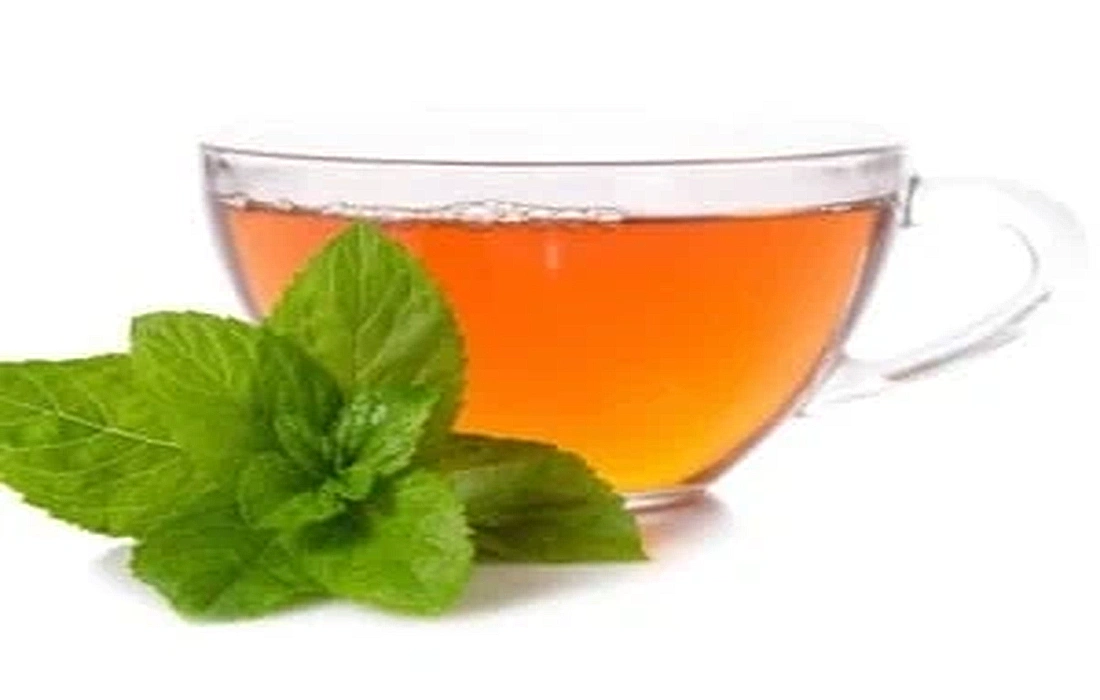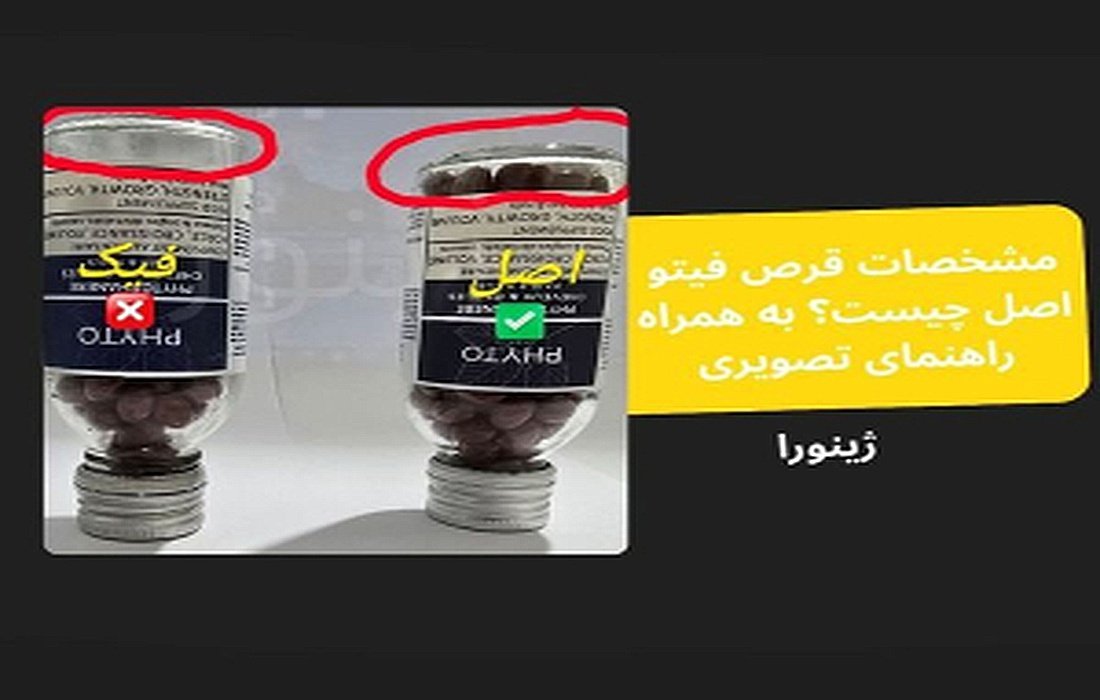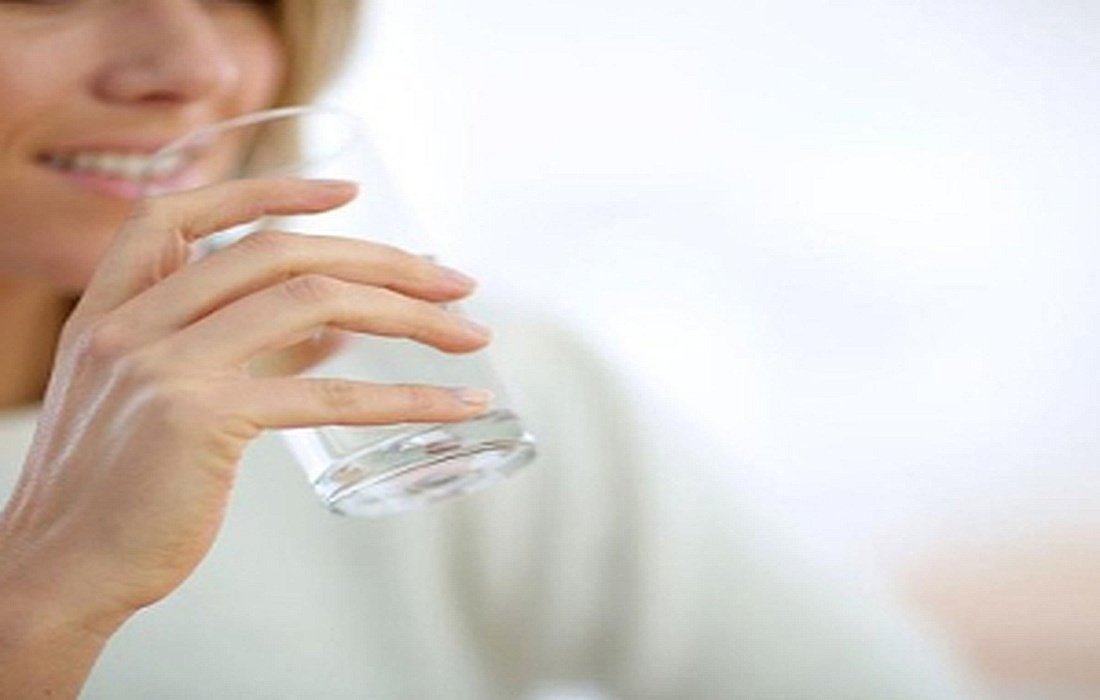Benefits of teaPeppermintand its remarkable medicinal effects
Although peppermint tea has been used for centuries to treat various health issues, scientific studies on its health benefits have been ongoing since 2010 at the University of Wisconsin School of Medicine, and are still in early stages. Peppermint tea, with minimal side effects, could serve as a suitable alternative to chemical medications in some cases. However, always consult your doctor before addressing health problems with peppermint tea. Carefully read this health section for more information.SelMagzYou can better understand the benefits ofpeppermint tea.
Health benefitsof drinking teapeppermint
Reduce stress
Drinking a hot cup of peppermint tea can help even irritable individuals relax. Peppermint tea is very effective in reducing stress. It contains menthol, which helps relax muscles. Drinking this tea can make you feel less stressed. People who spend time each day enjoying a good cup of peppermint tea experience a pleasant taste as well.Lowering feverWhen considering the cooling effects of menthol, we usually think of cold drinks, but peppermint tea containing menthol can be considered a therapeutic remedy; drinking it may cause sweating and lower body temperature while also reducing inflammation and discomfort.
Relieving
Toothache

and bad breathPeppermint tea can be used to reduce toothache. It contains eugenol, which has antibacterial, antiseptic, and pain-relieving properties. Peppermint tea also helps eliminatebad breath
caused by smoking or eating onions and garlic. Its antibacterial properties make it effective for improving breath. You can drink the tea or even gargle with it for the best results.Relievingnasal congestion caused by colds or allergiessuch as congestion from smoking or eating garlicPeppermint tea’s antibacterial properties make it suitable for improving breathing. You can consume the tea or gargle with it to achieve optimal effects.
Improving sleep issues
Many people turn to sleeping pills when they have sleep problems, but sometimes nothing is more effective than peppermint tea. Drinking warm peppermint tea is calming, and the menthol helps those who struggle with restful sleep. It may help solve underlying psychological issues that interfere with sleep. Lack of sleep can itself be a serious condition, so peppermint tea might help on different levels.
Enhancing concentration
Having trouble focusing? Peppermint can be a solution.
A study in the International Journal of Neuroscience showed that peppermint tea can improve concentration and accuracy. Additionally, research from the University of Cincinnati indicated that the smell of peppermint is even more important than drinking the tea itself. The aroma in a room where people are present increases alertness and focus because menthol’s scent enhances hippocampus activity, the brain’s memory center. To get these benefits, brew peppermint tea and gradually distribute the aroma. For example, boil water in a pot, add peppermint leaves, and create a homemade peppermint scent. Place a pot of mint in the room to fill it with the aroma.

Weight loss
People trying tolose weight can increase their chances by regularly drinking peppermint tea. It may positively affect metabolism, making calorie burning easier early on. Many find that drinking peppermint tea first reduces theirappetitewhich makes it easier to follow a controlled diet. Naturally, peppermint tea contains no calories, and drinking more calorie-free liquids can help accelerate weight loss.Relieving sinus congestion
Any hot liquid, from tea to hot water with honey, can help clear congestion, but peppermint tea has specific benefits. Once again, thank menthol! Menthol is a natural decongestant that can reduce sinus pressure, and warm liquids can soothe sore throats—symptoms often associated with colds.
Reducingmuscle crampsduring menstruationA generally, peppermint tea is excellent for relieving muscle constriction. This makes it a good herbal remedy for athletes and those dealing withanxietyor muscle tension. It is especially effective for the muscles in the uterine walls. Menthol has antispasmodic effects, helping reduce stomach discomfort, stress, and menstrual cramps. Drinking a cup of peppermint tea 2-3 times a day before and during menstruation can ease cramps in women suffering from PMS and dysmenorrhea.Benefits andproperties of peppermint tea for skinFor oily skin, peppermint or menthol has long been used. Our skin attracts dust particles, acting like a magnet. Menthol, the main component in peppermint leaves, reduces oil secretion from skin glands, helping achieve clear, oil-free skin.
Treating skin burning
If you have sensitive skin or experience frequent irritation, drinking a hot cup of peppermint tea may be beneficial. Over time, this can help soothe
allergiesand skin burning. The cooling properties of peppermint can reduce pain, insect bites, skin rashes, inflammation, and burns.Improving acne

The menthol in peppermint leaves can help clear up pimples or acne. Its cooling effect works wonders on oily, acne-prone skin.
Storing peppermint teaTo keep its strong flavor, store peppermint tea properly. Keep the plant in clean, airtight containers in a cool, dark place. Cabinets, pantries, and dark jars are suitable. Proper storage can keep the herbs fresh for many years; ground herbs last about a year.How many cups per day?
1-2 cups daily are enough to enjoy digestive benefits, even outside of home. Like most herbal remedies and supplements, effects usually appear within 1-2 hours after drinking. It is also good to take short breaks of a week from herbal teas or supplements.
How to make peppermint teaPeppermint tea is a natural drink made from peppermint leaves (either leaves or stems). It is very calming and refreshes both body and soul. You can prepare it with dried leaves or various other methods.Ingredients:Peppermint leavesWaterSugar or other sweetenersPreparation steps:Select a few peppermint leaves from the plant. Place them in a tray under direct sunlight.Check the leaves. They should be dry and brittle. If not, leave them for another 24 hours.
Pour boiling water over about 2 tablespoons of dried leaves into a cup.
Cover the cup for 10-20 minutes.
Strain the tea and add sweetener if desired. Enjoy!
Precautions and side effects of peppermint teaAcid reflux flare-upsPeople withGERD or stomach reflux often experience increased symptoms when drinking peppermint tea because it relaxes the stomach muscles and the sphincter muscles, which can allow stomach acid to enter the esophagus and worsen symptoms.Precautions during pregnancy

Peppermint tea during pregnancy
May relax uterine muscles, increasing the risk of miscarriage. Although there is no conclusive scientific evidence that peppermint tea increases this risk, women with a history of miscarriage should be cautious. Also avoid if planning pregnancy or during pregnancy and breastfeeding, as it could be harmful to infants and children.Drug interactionsIn some cases, peppermint tea reacts negatively with other medications already being used. Always consult your healthcare provider before regularly consuming peppermint tea, especially if you take prescription or over-the-counter medicine.
People with menthol allergies should avoid peppermint tea, as it may trigger adverse effects. Also, avoid if you have asthma, as it might worsen symptoms.
Overdose effects of peppermint teaExcessive consumption of any herb can cause side effects; this applies to peppermint as well. Overconsumption may lead to cramps, diarrhea, drowsiness, muscle pain, slow heart rate, or tremors. Serious side effects are rare but monitoring your intake is important.Pay attention to the amount of leaves used in each cup to ensure your dosage stays within recommended limits.
Ideally, each 150 ml of water used for boiling should include about 1 gram of peppermint leaves. To avoid potential negative effects, do not drink more than 2-3 cups of peppermint tea per day.
Benefits of peppermint tea for the bodyHealth benefits of peppermint teaPeppermint tea for helping concentration
Advantages of peppermint tea
Peppermint tea for immune boosting

Relief from nausea
Peppermint tea for nausea
Peppermint tea for skin
Tea for gum health
Properties of peppermint teaBenefits of peppermint tea for stomach pain and muscle crampsPeppermint tea for weight loss
Medicinal properties of peppermint teaHow to prepare peppermint teaSide effects of peppermint tea

Excessive intake of peppermintHealth benefits of peppermintBenefits of drinking tea
Stress relief
Benefits of peppermint tea
Tooth pain relief
Causes of bad breathBenefits of onionsExcessive intake of peppermint tea
Rapid weight loss
Ways to suppress appetite
Benefits of honey
Sinus pressure relief
Throat pain relief
Cold treatmentEffects and side effects of peppermint teaAcne treatment

Understanding nutrients
Fart and indigestion relief
Indigestion remedies
- Relief from nausea
- Stomach pain relief
- How to make peppermint tea
Flu symptom relief
- Hair growth methods
- Gallstone treatment
- Storing peppermint tea
- How many cups per day?
- 1-2 cups per day is usually enough to gain digestive benefits, even when not at home. Like most herbal remedies and supplements, effects typically appear within 1-2 hours. It’s also good to occasionally take a week off from herbal teas or supplements.

How to prepare peppermint tea
Peppermint tea is a natural infusion made from peppermint leaves (either leaves or stems). It is a very relaxing beverage that refreshes the body and mind. You can prepare it with dried leaves or various other methods.
Required ingredients:Peppermint leavesWater
Sugar or other sweetener
Preparation steps:Select a few peppermint leaves from the plant. Place them in a tray under direct sunlight.Check the leaves. They should be dry and brittle. If not, leave them for another 24 hours.Pour boiling water over about 2 tablespoons of dried leaves into a cup.Cover the cup for 10-20 minutes.Strain the tea and add sweetener if desired. Enjoy!Precautions and side effects of peppermint tea
Acid reflux aggravation
People with
gastric reflux or GERD often experience worsened symptoms when drinking peppermint tea because it relaxes the stomach muscles and the sphincter muscles, potentially allowing acid to travel up into the esophagus and increasing discomfort.

Precautions for pregnant women
Drinking peppermint tea during pregnancyMay relax uterine muscles and increase the risk of miscarriage. Although scientific evidence does not conclusively prove that peppermint tea causes this, women with a history of miscarriage should exercise caution. Also, pregnant and breastfeeding women should avoid it, as it could be harmful to infants and children.Drug interactions
In some cases, peppermint tea has shown adverse reactions when taken with other medications. Always consult your healthcare provider before regularly consuming peppermint tea, especially if you’re on prescription or OTC medicines.
People allergic to menthol should avoid peppermint tea, as it may cause side effects. Also, if you have asthma, avoid consuming it, as it may worsen symptoms.
Overdose effects







